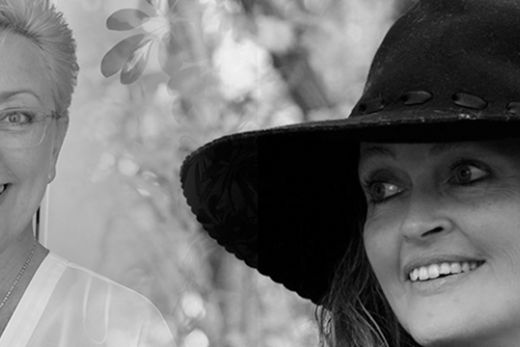19/08/2016
SensUs Interviews: Brenda and Margot
For this edition of SensUs Interviews, we have interviewed Brenda de Coninck and Margot Linden, who are both members of the Dutch Association for Kidney Patients. The goal of SensUs 2016 is to make a biosensor that measures creatinine, which is of great importance for kidney patients. In this interview they explain the great impact that kidney disease has in their lives, and what it would mean for them if they could have a biosensor to monitor their kidney status.
Can you tell something about yourself?
Brenda: "I am 53 years old and work as a hypnotherapist. I perform volunteer work for the Dutch Association for Kidney Patients and wrote a book entitled 'I am not a car?!' with a series of columns that I wrote for a kidney news internet site. I am a member of the European ADPKD (Autosomal Dominant Polycystic Kidney Disease) patient steering group, and a member of the European ADPKD Forum, which is a group of medical professionals who aim to raise awareness about ADPKD."
Margot: "I am 48 years old and I had to stop working due to my illness 15 years ago. I have performed volunteer work for the Dutch Association for Kidney Patients for many years, which is enormously rewarding and which compensates for the loss of a normal job. I suffer from a rare form of Nephrotic Syndrome. The disease leads to a strong loss of proteins; this gives low protein levels in the blood and retention of water in soft tissues (edema). Secondary complications are for example high cholesterol levels and risk of thrombosis. "
Can you tell something about your medical condition and how it affects your life(style)?
Brenda: "I am diagnosed with Autosomal Dominant Polycystic Kidney Disease (ADPKD). This is a genetic disease involving the development of renal cysts. Half of the patients with this disease develop end-stage kidney disease and need dialysis or an organ transplant. My kidneys are enlarged to 18 and 16 cm, filling up my torso from my back to my belly, pushing all other organs aside. Hence, I feel 'full' quite often. I try to eat organic food, with low sodium, low potassium, low protein and low phosphate. I make sure to have a high fluid intake."
Margot: "My illness has had a huge impact on my life: I lost my job, I am not able to practise active sports, lost my relationship, and the possibility to ever become a mother. My kidney function has gradually declined to a level of about 15%. I am mentally young and vital, but physically I feel like an 80-year-old. Every step back in physical condition requires an enormous adaptive power, because with every step I can do less myself and become more and more dependent on the help of others. I am currently in the middle of investigations to receive a kidney from my mother."
How could a biosensor be useful for you? Could you have benefit from a biosensor for creatinine?
Brenda: "I would certainly benefit from a biosensor for creatinine. It would enable me to easily and regularly monitor my kidney function, instead of having to go to the hospital all the time. It would give me a feeling of 'control' too."
Margot: "This would give several advantages for kidney patients. For patients without a transplant, it would be beneficial to check at home if certain complaints or symptoms arise from a decrease in kidney function or not. For patients with a transplant, it would be an easy way to detect the starting rejection of the transplanted organ. It is cumbersome and very time-consuming to do creatinine testing via the GP and central lab. A biosensor would give less trouble and a quicker result."
In the field of point-of-care testing and biosensing, what would be on your wish list, or on the wish list of other people that you know of?
Brenda: "To be able to monitor my potassium level at home."
Margot: "That it would be simple and easy to do. As simple as present-day glucose testing: one tiny finger prick, one drop of blood on a test strip, and the device shows the result."
What do you think of the SensUs concept and vision? How are you involved in SensUs?
Brenda: "It is good to see that young students are making biosensors and are asked to think about translation into products that can make a world of a difference for patients. I am happy that I was asked to be part of the jury at the SensUs competition and to represent the interests of kidney patients."
Margot: "I like the idea of challenging students to think of technological concepts which could be useful for mankind. I feel honoured and privileged to be asked for de SensUs jury. Unfortunately my physical condition has worsened too much to be able to visit Eindhoven."
Finally, do you have an advice for the SensUs students and stakeholders?
Brenda: "Please make biosensors easy to use. I would like to have only an on-off switch and an easy to read display, that's all. What is a normal range? Can the device warn me if my values are too high or too low? Furthermore, is it possible that my nephrologist also gets the results, so that he or she can intervene when it is necessary? "
Margot: "Make sure the biosensor is very practical, as mentioned above. Also make sure that the test is affordable, since many kidney patients receive unemployment benefits only. Preferably the test is reimbursed by the insurance companies, so also involve them in your developments."

Facebook
YouTube
LinkedIn
Instagram